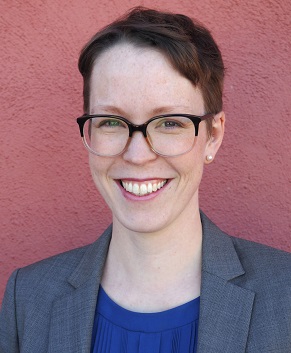Senior Attorney, Center for Biological Diversity
Clare is a senior attorney at the Center for Biological Diversity, an environmental organization that works to secure a future for all species hovering on the brink of extinction. As part of the climate change team, her work focuses on using environmental law to reduce greenhouse gas pollution and promote a just transition from fossil fuels to a clean energy future.
What is the educational and career path that led to your current career?
I’ve had a quirky path to end up where I am now. I grew up in Australia, and completed my undergraduate and law degrees there. When I graduated, I took a position as a lawyer for the Department of the Attorney General in Western Australia, which gave me the opportunity to work on litigation across an incredibly broad range of areas. After several years of work, I felt I wasn’t done exploring the law in an academic setting, so I studied for a Masters of Law while working full time. Out of personal interest, I focused on courses that compared constitutional and administrative law in the United State and Australia, which served me well when the opportunity to relocate to San Francisco came up.
Relocating necessarily required me to reassess my career focus. An environmental law professor I studied with offered me a position as a research assistant when I moved to the USA, which gave me the opportunity to confirm this was an area I was interested in. My previous government experience and academic background are a good fit for my current position, which focuses on how state and federal agencies apply environmental laws.
How did you become interested in environmental work?
I’ve always been an environmentalist. I can remember writing postcards opposing nuclear testing when I was nine years old, and going to environmental protests in in my teens. When I had to write a history essay on a topic of my choosing in high school, I prepared what I still believe to be the first written history of anti-logging protests in south-western Australia.
But environmental activism wasn’t really presented to me as leading to viable career path in school or college, so I put it to one side in favor of other public service work. I’m really fortunate that I now get to do paid work that aligns with the values I’ve always held.
What environmental issues are of most concern to you?
Climate change is just such a pervasive problem. It is already impacting people’s lives and livelihoods, and without change those impacts are going to be so much worse. Attorneys are taught to value justice, and there is great injustice in how the impacts of climate change will be experienced; that low income communities, communities of color, and the Global South will suffer the worst impacts.
Yet while climate change is such a serious, all-encompassing problem, the steps we need to take to avert worsened impacts are clear and known. This isn’t an intractable or unsolvable problem. The challenge is in harnessing and coordinating the political will to do what the science shows is required.
Linked to climate change, though it is not the sole cause, is the current extinction crisis. We are currently experiencing the sixth mass extinction in the history of our planet—the Anthropocene extinction. It breaks my heart to think that there are birds and mammals and bugs and plants that I grew up with that my child might never see in the wild.
And as climate change and extinction result in the loss of species and ecosystems, we lose the culture and language associated with those things. These environmental harms risk our physical health and survival, but they also impoverish our culture, the thing that makes us human and connects us as humans.
What are your suggestions on how WEN members can become involved in your sector and the environmental movement?
They can become directly involved in the work my organization is doing through Ignite Change, our grassroots organizing force! Ignite Change equips members with the skills to build power in their own communities and take political action to protect people, wildlife, and the planet.
Want to connect with Clare? You can connect with her personally here on LinkedIn. You can also visit the Center for Biological Diversity LinkedIn and Facebook pages and Twitter feed.
